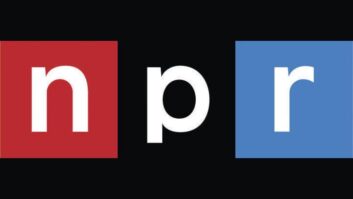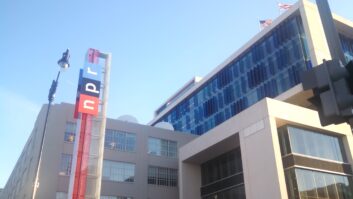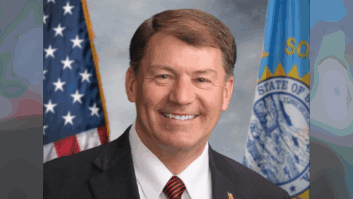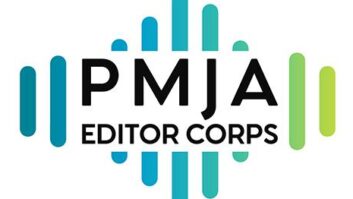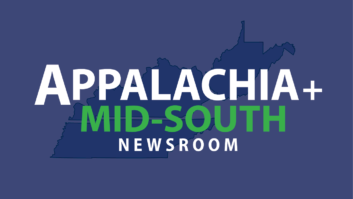The Corporation for Public Broadcasting is defending its decision to grant nearly $58 million to a new entity to handle distribution of public media content in the U.S. CPB says National Public Radio’s court argument to stop the transaction amounts to an “over-caffeinated conspiracy theory.”
CPB is asking a federal judge to deny NPR’s request for an injunction summary judgement, arguing that NPR’s allegations that it conspired to retaliate against the radio network “in an attempt to gain favor with the Trump administration” are ridiculous.
In a new court filing this week in federal court, CPB says NPR’s “overblown rhetoric and assertions are demonstrably false” and its “legally baseless claims contradict the express will of Congress.”
The suit stems from CPB’s decision in late September to award a grant to fund a new nonprofit entity to distribute programming to public media stations. Public Media Infrastructure (PMI) is the new non-profit consortium set to receive $57.9 million over five years to handle public radio distribution through 2030.
NPR’s central claim is that CPB was motivated to issue the grant to PMI “out of desperation to give the Trump administration a win” and save its own funding, which was being threatened due to the administration’s “intense dislike” for NPR.
The abrupt decision by CPB to issue a grant to PMI “was brought on by political pressure from the Trump administration, and not legitimate fiscal or governance concerns,” NPR has said.
Specifically, NPR points to an April 2025 meeting with a senior official from the U.S. Office of Management and Budget (OMB), who expressed “her intense dislike for NPR,” which allegedly sent CPB into crisis mode and immediately preceded the CPB’s reversal, NPR said in its suit.
However, according to the new CPB filing, there is no evidence that, at the OMB meeting in April, or any other time, did any other government official ever direct, suggest or encourage CPB to take any action.
Among other things, CPB says experts had repeatedly expressed concern about repeated interconnection grant agreements with NPR that provide NPR with “sole and exclusive control over PRSS [Public Radio Satellite System].” Experts also asserted that “maintaining NPR’s de facto monopoly over interconnection funds was contrary to the public interest,” according to the CPB filing.
CPB says it repeatedly invited NPR to negotiate a new grant agreement that would transition the interconnection system to independent management. It argues NPR “expressed no interest in having such negotiations.”
“NPR has known for years that independent experts in broadcast and digital distribution strategies and technology have long been urging that CPB, as the Congressionally-mandated steward of public funds for public media, take steps to reform governance of the PRSS,” CPB argues in the filing.
That’s when CPB moved to create a working group of stations and public media organizations, including NPR appointees, to design a competitive bidding process for future funding, which resulted in the formation of PMI. The new entity includes American Public Media Group, the National Federation of Community Broadcasters, New York Public Radio, Public Radio Exchange (PRX) and the Station Resource Group.
CPB says it also pressed NPR for the need to improve diversity, representation and innovation in that governance.
According to the latest filing, October 2024, Deloitte recommended that CPB’s board implement independent governance of the public radio interconnection system to be more representative and diverse. NPR, according to CPB, had a significant financial self-interest in maintaining such sole and exclusive control, including maintenance of a “commercially-successful business” allowing it to charge third parties for access to the system and depositing the revenues in NPR’s coffers.
Further, in stark contrast to NPR’s assertions in its original motion, CPB’s board did not “approve” any agreement with NPR; as NPR’s own documents conceded, negotiations between CPB and NPR for a potential new interconnection grant agreement for funding “had not yet begun.”
In the end, NPR “is an unsuccessful bidder that has now decided that this was all part of a conspiracy between CPB and the Trump administration to punish NPR for the content of its journalism,” CPB argues.
CPB says the facts are beyond genuine dispute, and dispose of NPR’s “by selecting-PMI-over-us-CPB-violated-our-First-Amendment-rights” theory, and there are numerous reasons at law why NPR’s theory is untenable. But NPR’s theory is all the more unfounded given CPB’s interactions directly with the Trump Administration and its continued discussions with, and funding of, NPR,” according to CPB.
The filing urges Judge Randolph Moss to reject NPR’s motion outright. “At the end of the day, this case is about NPR’s desire for cash, without any strings, and not vindication of First Amendment rights,” the brief concludes. “Invoking the Constitution is a transparent ploy by NPR to obscure its true goal,” CPB said in the filing.
A final decision on NPR’s request remains pending in the U.S. District Court for the District of Columbia.

